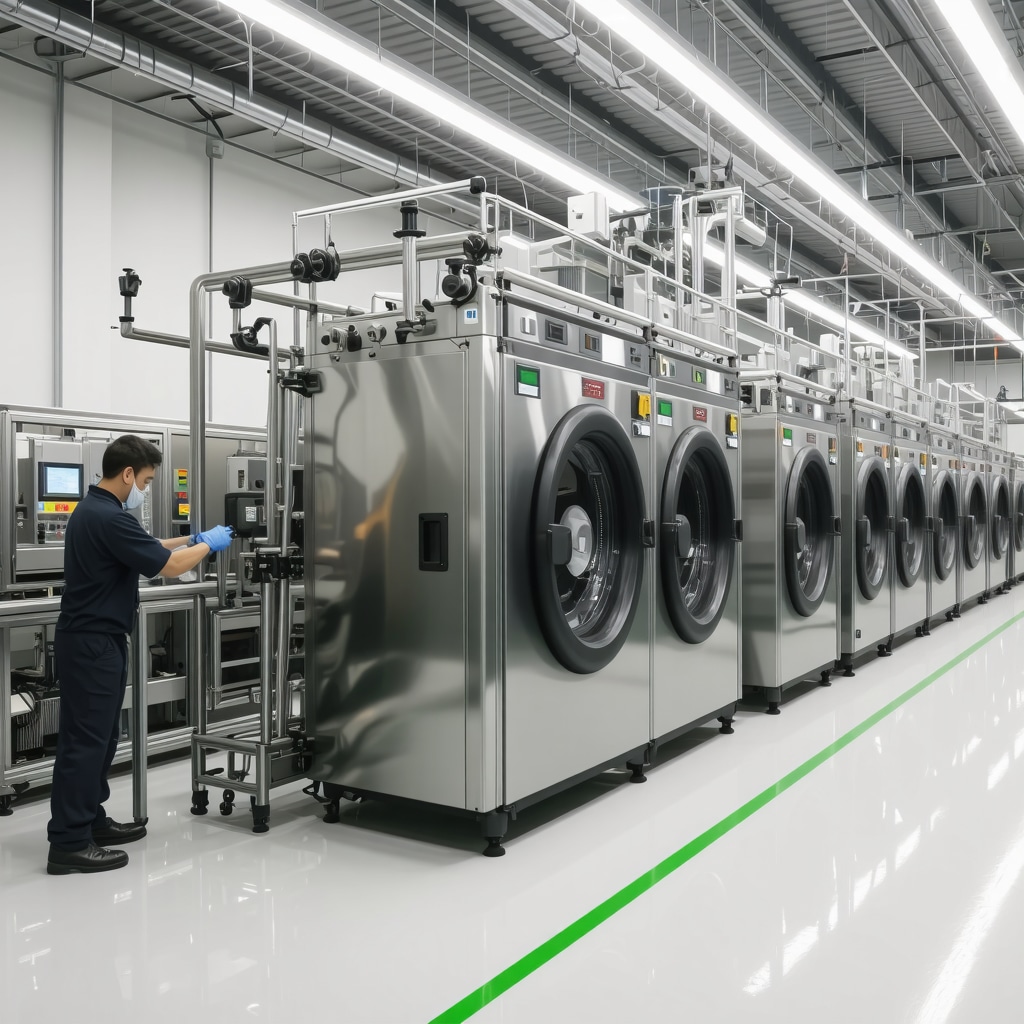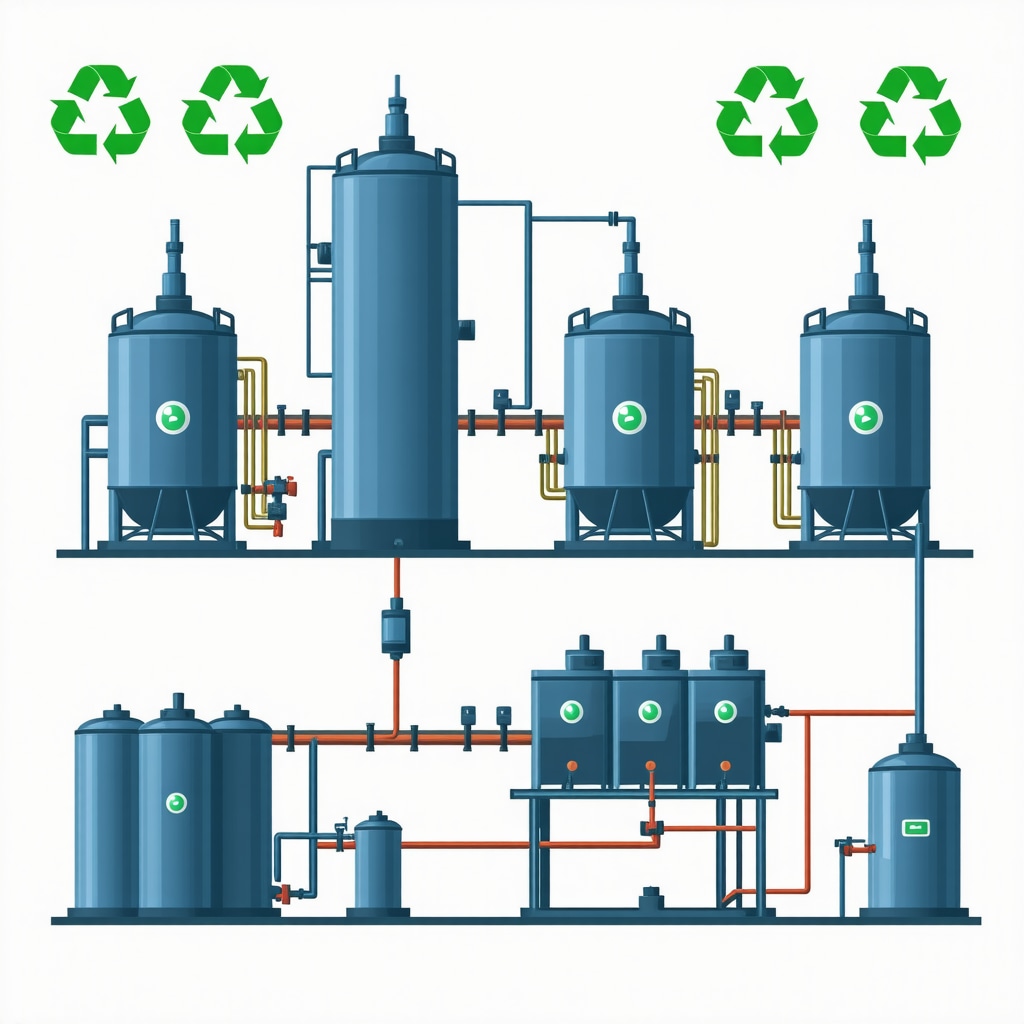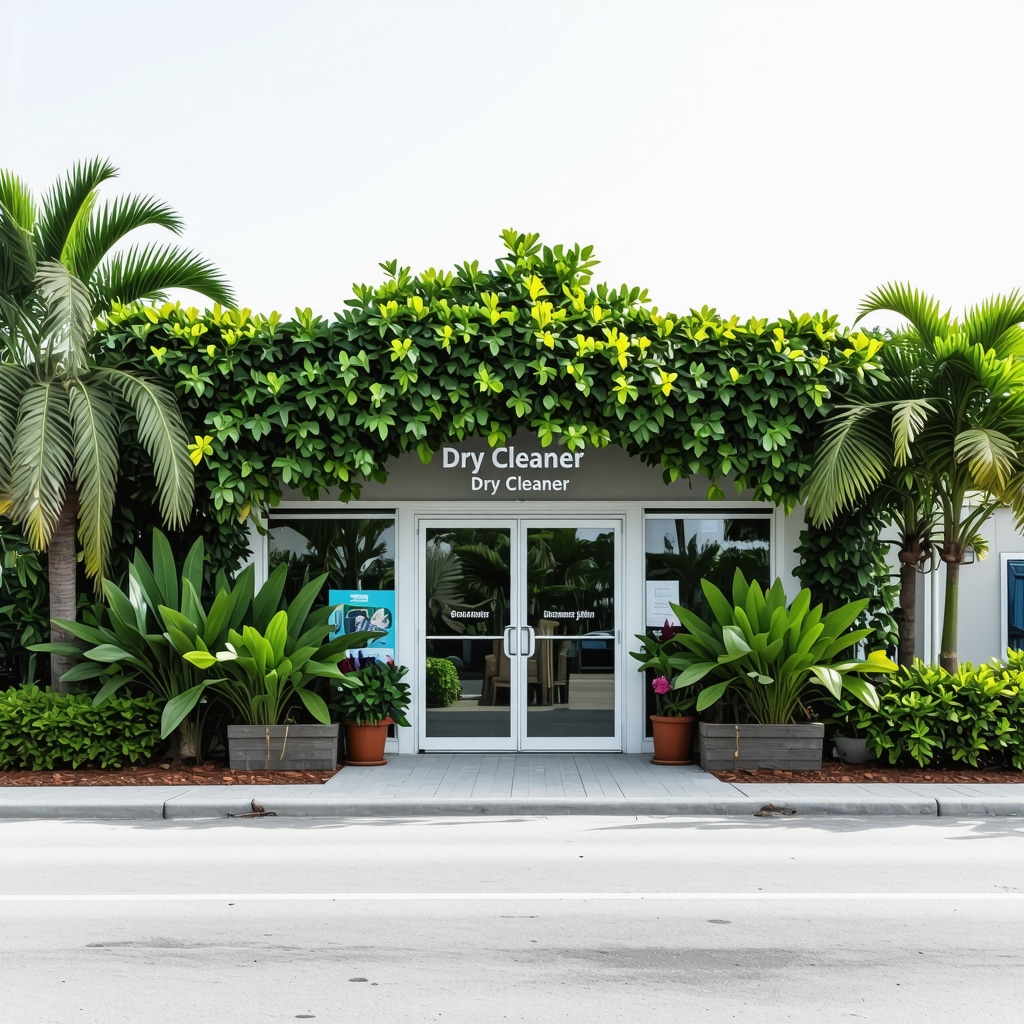Understanding the Importance of Green Dry Cleaning in Wesley Chapel FL
In an era where environmental consciousness drives consumer choices, identifying the best green dry cleaners in Wesley Chapel FL requires an expert understanding of sustainable garment care practices. Traditional dry cleaning methods often employ perchloroethylene (perc), a solvent with recognized toxicological and ecological risks. Green dry cleaning alternatives prioritize non-toxic, plant-based solvents and eco-friendly processes that not only preserve fabric integrity but also minimize environmental impact, aligning with the principles outlined in environmental health studies such as those by the U.S. Environmental Protection Agency on perc risks.
Evaluating Advanced Sustainable Dry Cleaning Technologies
Modern green dry cleaners in Wesley Chapel integrate cutting-edge technologies such as liquid carbon dioxide cleaning and silicone-based solvents, which drastically reduce volatile organic compound emissions. These innovations exemplify the sector’s move toward zero-waste dry cleaning, a concept gaining traction among eco-conscious consumers and businesses alike. For instance, exploring zero waste dry cleaning revolutionizing fabric care reveals practical methodologies that set the benchmark for sustainable practices.
What Criteria Distinguish the Best Green Dry Cleaners in Wesley Chapel FL?
Expertise in green dry cleaning transcends mere marketing claims; it requires verifiable certifications such as GreenCircle Certified or EcoLabel accreditation, which ensure compliance with rigorous environmental and safety standards. Additionally, best-in-class green dry cleaners adopt organic stain removal techniques that eschew harsh chemicals, favoring enzymatic or plant-derived solutions to protect delicate fabrics and sensitive skin—a critical consideration documented in dermatological research on hypoallergenic fabric care.
How Can Consumers Verify the Authenticity of Green Dry Cleaning Claims?
Consumers face the challenge of discerning genuine green dry cleaning services from greenwashing. Verifying credentials through third-party certifications, requesting detailed information on solvents and processes used, and reviewing customer testimonials are essential steps. Engaging with specialized forums such as the Eco-Friendly Dry Cleaning Network can offer nuanced perspectives from professionals and informed consumers alike, helping to navigate the complexities of sustainable garment care.
Integrating Green Dry Cleaning into a Holistic Sustainable Wardrobe Strategy
Optimal garment care extends beyond cleaning: sustainable choices include proper storage, plastic-free garment covers, and the use of organic fabric refresher sprays to minimize washing frequency. Resources like sustainable garment care protecting luxury wardrobes provide comprehensive strategies for preserving clothing while reducing environmental footprint.
Call to Action: Advance Your Knowledge on Eco-Friendly Fabric Care
For professionals and sustainability advocates seeking to deepen their expertise, exploring specialized content on plant-derived cleaning solvents and non-toxic dry cleaners can provide valuable insights. We invite readers to contribute their experiences and professional insights to enrich this evolving discourse on green dry cleaning in Wesley Chapel FL.
Emerging Trends in Eco-Friendly Solvent Technologies
As the green dry cleaning industry evolves, the adoption of innovative solvents derived from natural sources is reshaping fabric care paradigms. Among these, silicone-based solvents and liquid carbon dioxide stand out due to their exceptional cleaning efficacy combined with minimal environmental footprints. Unlike traditional perc solvents, these eco-friendly alternatives boast rapid biodegradability and reduced toxicity, which are critical for sustainable garment maintenance. Research published by the Journal of Cleaner Production highlights that silicone-based solvents significantly lower volatile organic compound (VOC) emissions, contributing to safer indoor air quality and worker health.
How Do Green Certification Programs Ensure Authenticity and Quality?
Green certification programs play a pivotal role in distinguishing truly sustainable dry cleaning services from superficial marketing. Certifications like GreenCircle and EcoLabel demand stringent audits covering solvent usage, waste management, and energy efficiency. These programs not only verify the use of plant-based or low-impact solvents but also encompass operational transparency and community engagement. For instance, a certified green dry cleaner in Wesley Chapel FL must demonstrate compliance with these comprehensive standards, assuring customers of authentic eco-conscious practices. In addition, examining customer reviews on platforms dedicated to sustainable services can shed light on service quality and environmental commitment.
What Are the Practical Implications of Choosing a Green Certified Dry Cleaner for Your Wardrobe?
Opting for a green certified dry cleaner extends benefits beyond environmental responsibility. The specialized cleaning methods preserve fabric integrity, extend garment lifespan, and reduce allergenic residues, which is especially important for individuals with sensitive skin or respiratory conditions. Moreover, these services often incorporate organic stain removal and hypoallergenic finishing processes, reinforcing a holistic approach to garment care. Understanding these nuances empowers consumers to make informed choices that align with both personal health and ecological sustainability.
Integrating Sustainable Practices Beyond the Dry Cleaning Process
Complementing eco-friendly dry cleaning with sustainable garment care routines can amplify environmental benefits. Employing plastic-free garment covers, minimizing unnecessary cleaning cycles by using organic fabric refresher sprays, and adopting proper storage techniques reduce resource consumption and waste generation. For comprehensive guidance, professionals recommend consulting resources like sustainable garment care strategies for luxury wardrobes, which offer expert tips that merge sustainability with garment preservation.
Engage with the Green Dry Cleaning Community
We encourage readers and sustainability advocates to share their experiences with green dry cleaning services in Wesley Chapel FL. Your insights can help refine selection criteria, promote transparency, and foster a community dedicated to advancing eco-friendly fabric care. For further exploration, delve into specialized topics such as plant-derived cleaning solvents and non-toxic dry cleaners, which deepen understanding of sustainable innovations in the field.
Harnessing Biodegradable Surfactants: The Next Frontier in Sustainable Dry Cleaning
Biodegradable surfactants are emerging as a game-changer in the green dry cleaning industry, offering an ecologically harmonious alternative to traditional detergents. Unlike conventional surfactants that may persist in ecosystems causing bioaccumulation and toxicity, biodegradable variants break down rapidly into harmless substances, thereby mitigating soil and water contamination. These molecules, often derived from renewable plant oils and sugars, optimize soil biodegradability without compromising cleaning performance.
Integrating biodegradable surfactants in Wesley Chapel’s green dry cleaning protocols enhances the biodegradability profile of wastewater effluents, aligning with EPA’s stringent water quality standards. This advancement transcends the solvent focus by addressing the entire chemical ecosystem involved in garment care. As research published in the Environmental Science & Technology journal demonstrates, the environmental persistence of cleaning agents is a critical determinant of sustainable practice viability.
How Do Biodegradable Surfactants Compare to Traditional Agents in Cleaning Efficacy and Environmental Impact?
While skepticism around green cleaning agents is common, biodegradable surfactants have been engineered to match or surpass the efficacy of petrochemical-based counterparts. Their amphiphilic nature facilitates the emulsification of oils and dirt within fabrics, ensuring thorough cleaning without residual toxicity. Moreover, their rapid degradation in aerobic environments curtails long-term ecological damage, reducing risks to aquatic life and terrestrial microorganisms.
From a practical standpoint, garments treated with biodegradable surfactants exhibit maintained color vibrancy and fiber strength, which extends garment lifespan and reduces textile waste. For environmentally conscious consumers in Wesley Chapel FL, selecting dry cleaners employing these advanced surfactants effectively supports a circular economy within textile maintenance.
Advancing Circular Economy Principles through Solvent Recycling and Energy Efficiency
Beyond solvent selection, exemplary green dry cleaners in Wesley Chapel adopt integrated systems for solvent recovery and energy optimization. Closed-loop solvent recycling units capture and purify solvents post-cleaning, significantly reducing fresh solvent demand and hazardous waste generation. This practice not only economizes resource use but also diminishes volatile organic compound emissions, enhancing both environmental and occupational health.
Energy efficiency is further achieved through the deployment of heat recovery systems and energy-efficient machinery, reducing the carbon footprint of dry cleaning operations. These measures resonate with the comprehensive sustainability frameworks advocated by the ISO 14001 Environmental Management standards, ensuring that environmental stewardship is embedded in organizational processes.
What Operational Challenges Do Dry Cleaners Face When Implementing Closed-Loop Solvent Recycling Systems?
Introducing closed-loop solvent recycling entails capital investment and technical expertise to maintain system integrity and solvent purity. Contamination by dyes, soils, and additives requires advanced filtration and monitoring technologies to prevent degradation of cleaning efficacy. Moreover, staff training is critical to manage these systems effectively and ensure consistent environmental compliance.
Despite these challenges, the long-term economic and ecological benefits justify the transition, positioning Wesley Chapel FL’s green dry cleaning providers as leaders in sustainable textile care innovation.

Optimizing Consumer Engagement: Educating About the Science Behind Green Dry Cleaning
Consumer understanding is pivotal to driving demand for authentic green dry cleaning services. Educational initiatives that clearly communicate the scientific principles of solvent biodegradability, emission reductions, and fabric preservation foster informed decision-making. Workshops, transparent labeling, and detailed service disclosures help demystify the complexities of eco-friendly garment care.
Such engagement strategies also leverage digital platforms and community partnerships, reinforcing trust and encouraging sustainable consumption patterns. By bridging the gap between technical expertise and consumer awareness, green dry cleaners in Wesley Chapel can cultivate a loyal clientele motivated by environmental and health considerations.
Explore Further: Deepen Your Expertise in Green Dry Cleaning Innovations
For industry professionals and sustainability advocates seeking deeper insights, resources like the Environmental Science & Technology journal article on biodegradable surfactants offer extensive analyses of chemical ecology in cleaning technologies. We invite readers to engage with this evolving knowledge base and participate in advancing sustainable textile care in Wesley Chapel FL.
Exploring Next-Generation Biodegradable Surfactants for Superior Fabric Care
In the evolving landscape of sustainable textile maintenance, biodegradable surfactants represent a quantum leap beyond traditional detergents. Synthesized primarily from renewable plant oils and saccharides, these surfactants exhibit a unique amphiphilic structure enabling robust removal of hydrophobic soils while ensuring rapid environmental breakdown. Their integration into Wesley Chapel FL’s green dry cleaning protocols mitigates the bioaccumulation risks associated with petrochemical agents, harmonizing high-performance fabric care with ecological stewardship.
Closed-Loop Solvent Recycling: Engineering Sustainability in Dry Cleaning Operations
Adoption of closed-loop solvent recycling systems epitomizes operational excellence in environmental management within green dry cleaning. Such systems entail sophisticated filtration and purification modules that restore solvents to near-pristine conditions post-use, drastically curtailing solvent waste and VOC emissions. However, the implementation demands rigorous process controls to navigate challenges including solvent contamination from dyes and particulate matter. The balance between capital expenditure and long-term ecological dividends underscores the strategic value of these systems.

What Are the Technical and Economic Barriers to Implementing Closed-Loop Systems in Small-Scale Dry Cleaners?
While large-scale facilities may readily absorb the costs and complexities of closed-loop solvent recycling, smaller dry cleaners in Wesley Chapel often confront significant hurdles. Initial investments in advanced filtration technology, alongside continual maintenance and staff training, present considerable financial and operational challenges. Moreover, maintaining solvent purity amidst variable garment contaminants requires sophisticated monitoring equipment and adaptive management strategies. Nonetheless, grants and incentives aligned with ISO 14001 environmental frameworks can alleviate these barriers, fostering wider adoption.
Leveraging ISO 14001 to Integrate Environmental Management with Dry Cleaning Excellence
ISO 14001 provides a robust framework for embedding environmental responsibility into all facets of dry cleaning operations. From energy-efficient machinery procurement to waste minimization and staff environmental education, adherence to this standard ensures a holistic approach to sustainability. Wesley Chapel green dry cleaners utilizing ISO 14001 not only enhance internal processes but also demonstrate credible environmental leadership, bolstering consumer trust.
Harnessing Scientific Research to Drive Innovation: Insights from Environmental Chemistry
Cutting-edge research published by the Environmental Science & Technology journal elucidates the chemical pathways by which biodegradable surfactants degrade and their interactions within aquatic ecosystems. Such insights guide formulation improvements, ensuring enhanced biodegradability without compromising cleaning efficacy. For Wesley Chapel’s dry cleaning sector, translating these findings into practice accelerates the transition to truly sustainable fabric care methodologies.
Call to Action: Engage with Advanced Sustainable Dry Cleaning Practices
Sustainability advocates, industry professionals, and conscientious consumers are invited to deepen their engagement with the scientific and operational innovations shaping green dry cleaning in Wesley Chapel FL. By embracing biodegradable surfactants, investing in closed-loop solvent recycling, and aligning with ISO 14001 standards, stakeholders can collectively uplift environmental performance and garment care quality. Join the discourse, share your expertise, and propel the future of eco-friendly textile maintenance.
Expert Insights & Advanced Considerations
The Critical Role of Biodegradable Surfactants in Enhancing Environmental Compatibility
Biodegradable surfactants have transitioned from experimental additives to essential components in green dry cleaning formulations. Their rapid environmental breakdown significantly reduces aquatic toxicity and bioaccumulation risks, making them indispensable for sustainable textile care. Their amphiphilic properties ensure effective soil removal without compromising fabric integrity, aligning with advanced ecological chemistry principles.
Closed-Loop Solvent Recycling as a Benchmark for Operational Sustainability
Implementing closed-loop solvent recycling systems exemplifies how green dry cleaners can dramatically reduce hazardous waste and solvent consumption. Despite technical and economic barriers, such systems yield long-term environmental and financial dividends by recovering solvents to near-pristine conditions, thus minimizing volatile organic compound emissions and enhancing compliance with ISO 14001 environmental management standards.
Integrating ISO 14001 Frameworks to Institutionalize Environmental Stewardship
Adoption of ISO 14001 empowers dry cleaning operations to embed sustainability into their organizational DNA. This comprehensive approach transcends mere solvent selection by addressing energy efficiency, waste management, and staff training, thus elevating service quality and consumer trust while mitigating environmental impact.
Transparency and Certification as Pillars of Authentic Green Dry Cleaning
GreenCircle Certified and EcoLabel accreditations provide rigorous third-party validation of eco-friendly claims. Transparency in solvent use, stain removal techniques, and operational practices fortifies consumer confidence and counters greenwashing, a prevalent challenge in the sector.
Consumer Education as a Catalyst for Sustainable Market Transformation
Educating consumers about the science and benefits of green dry cleaning fosters informed decision-making and demand for authentic services. Engagement through workshops, detailed disclosures, and digital communication bridges the gap between technical expertise and consumer behavior, reinforcing sustainable consumption patterns.
Curated Expert Resources
- Environmental Science & Technology Journal – Provides peer-reviewed research on biodegradable surfactants and their ecological interactions, offering valuable insights for chemical innovation in green dry cleaning.
- ISO 14001 Environmental Management Standards – A globally recognized framework that guides organizations in systematic environmental stewardship and operational sustainability.
- Zero Waste Dry Cleaning Revolutionizing Fabric Care – An authoritative resource detailing practical methodologies for achieving zero-waste operations in garment care.
- Plant-Derived Cleaning Solvents Explained – Offers comprehensive explanations of sustainable solvent technologies critical for eco-friendly fabric care.
- Organic Stain Removal Techniques for Delicate Fabrics – Explores chemical-free stain treatment approaches essential for hypoallergenic and sustainable cleaning protocols.
Final Expert Perspective
The landscape of green dry cleaning in Wesley Chapel FL is rapidly evolving, propelled by scientific breakthroughs and rigorous sustainability standards. The integration of biodegradable surfactants, closed-loop solvent recycling, and ISO 14001 frameworks collectively elevates the environmental and operational excellence of dry cleaning services. Authenticity, anchored in transparent certification and consumer education, remains paramount to distinguishing these providers in a market susceptible to greenwashing. For professionals and discerning consumers alike, engaging deeply with advanced sustainable garment care strategies—such as those outlined in sustainable garment care protecting luxury wardrobes—is essential to fostering a truly eco-conscious wardrobe maintenance culture. We encourage you to contribute your expertise, exchange insights, and explore these resources to champion the future of eco-friendly dry cleaning in Wesley Chapel FL.

